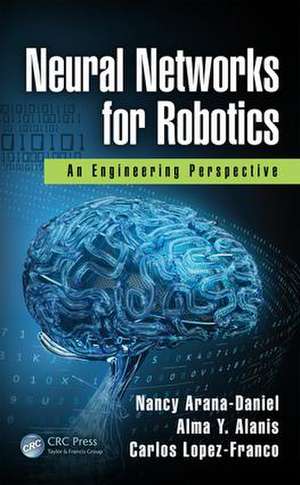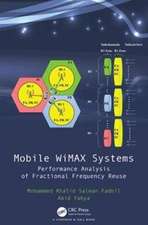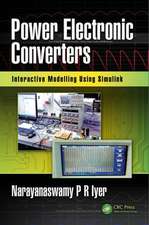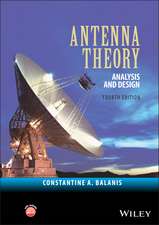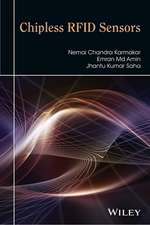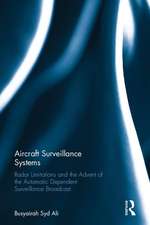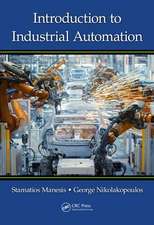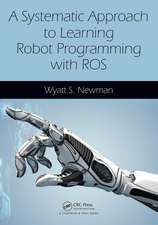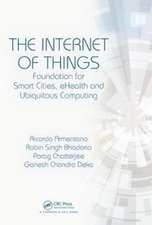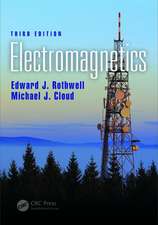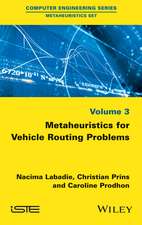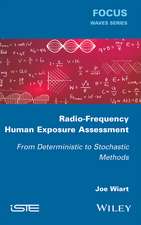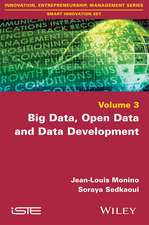Neural Networks for Robotics: An Engineering Perspective
Autor Nancy Arana-Daniel, Alma Y. Alanis, Carlos Lopez-Francoen Limba Engleză Hardback – 21 sep 2018
- Includes real-time examples for various robotic platforms.
- Discusses real-time implementation for land and aerial robots.
- Presents solutions for problems encountered in autonomous navigation.
- Explores the mathematical preliminaries needed to understand the proposed methodologies.
- Integrates computing, communications, control, sensing, planning, and other techniques by means of artificial neural networks for robotics.
| Toate formatele și edițiile | Preț | Express |
|---|---|---|
| Paperback (1) | 352.95 lei 6-8 săpt. | |
| CRC Press – 18 dec 2020 | 352.95 lei 6-8 săpt. | |
| Hardback (1) | 1109.18 lei 6-8 săpt. | |
| CRC Press – 21 sep 2018 | 1109.18 lei 6-8 săpt. |
Preț: 1109.18 lei
Preț vechi: 1352.65 lei
-18% Nou
Puncte Express: 1664
Preț estimativ în valută:
212.24€ • 222.19$ • 175.62£
212.24€ • 222.19$ • 175.62£
Carte tipărită la comandă
Livrare economică 05-19 aprilie
Preluare comenzi: 021 569.72.76
Specificații
ISBN-13: 9780815378686
ISBN-10: 0815378688
Pagini: 228
Ilustrații: 139 Line drawings, black and white; 22 Halftones, black and white; 15 Tables, black and white
Dimensiuni: 156 x 234 x 18 mm
Greutate: 0.45 kg
Ediția:1
Editura: CRC Press
Colecția CRC Press
ISBN-10: 0815378688
Pagini: 228
Ilustrații: 139 Line drawings, black and white; 22 Halftones, black and white; 15 Tables, black and white
Dimensiuni: 156 x 234 x 18 mm
Greutate: 0.45 kg
Ediția:1
Editura: CRC Press
Colecția CRC Press
Public țintă
Academic and Professional Practice & DevelopmentCuprins
Recurrent High Order Neural Networks for rough terrain cost mapping. Geometric Neural Networks for object recognition. Non-holonomic Mobile Robot Control using Recurrent High Order Neural Networks. Neural Networks for Autonomous Navigation on Nonholonomic Mobile Robots. Holonomic Robot Control using Neural Networks. Neural network based controller for Unmanned Aerial Vehicles.
Descriere
The book offers an insight on artificial neural networks for giving a robot a high level of autonomous tasks, such as navigation, object recognition, and clustering, with real-time implementations. It provides methodologies for a wide range of artificial neural network architectures to solve problems in autonomous navigation and object recognition.
Notă biografică
Nancy Arana-Daniel received her B.Sc. Degree from the University of Guadalajara in 2000, and her M. Sc. And Ph.D. degrees in electric engineering with the special field in computer science from Research Center of the National Polytechnic Institute and Advanced Studies, CINVESTAV, in 2003 and 2007, respectively. She is currently a research fellow at the University of Guadalajara, in the Department of Computer Science México, where she is working at the Laboratory of Intelligent Systems and the Research Center for Control Systems and Artificial Intelligence. She is IEEE Senior member and a member of National SystemofResearchers (SNI-1). She has published several papers in International Journals and Conferences, and she has been technical manager of several projects that have been granted by the National Council of Science and Technology (CONACYT). Also, she has collaborated in an international project granted by OPTREAT. She is Associated Editor of the Journal of Franklin Institute (Elsevier). Her research interests focus on applications of Geometric Algebra to Geometric computing, machine learning, bio-inspired optimization, pattern recognition, and robot navigation.
Carlos Lopez-Franco gained his Ph.D. in Computer Science in 2007 from the Center of Research and Advanced Studies, CINVESTAV Unidad Guadalajara, Jalisco, México. Currently, he is a full professor at the University of Guadalajara, México, Department of Computer Science. He is currently working with the Intelligent Systems group, and he is the head of the department of Computer Sciences at CUCEI, Universidad de Guadalajara. His current research interests include geometric algebra, computer vision, robotics, and pattern recognition.
Alma Y. Alanis received her B.Sc degree from Instituto Tecnologico de Durango (ITD, Durango Campus, Durango) in 2002, and her M.Sc. and Ph.D. degrees in electrical engineering from the Advanced Studies and Research Center of the National Polytechnic Institute (CINVESTAV-IPN, Guadalajara Campus, Mexico) in 2004 and 2007, respectively. Since 2008, she has been with the University of Guadalajara, where she is currently a Chair Professor in the Department of Computer Science. She is also a member of the Mexican National Research System (SNI-2). She has published papers in recognized International Journals and Conferences, along with two international books. She is a Senior Member of the IEEE and Subject and Associated Editor of the Journal of Franklin Institute (Elsevier) and Intelligent Automation & Soft Computing (Taylor & Francis); moreover, she is currently serving on a number of IEEE and IFAC Conference Organizing Committees. In 2013, she received the grant for women in science by L'Oreal-UNESCO-AMC-CONACYT-CONALMEX. In 2015, she received the Marcos Moshinsky Research Award. Since 2008, she has been a member of the Accredited Assessors record (RCEA-CONACYT), evaluating a wide range of national research projects. She has belonged to important project evaluation committees for national and international research projects. Her research interests are in neural control, backstepping control, block control, and their applications to electrical machines, power systems, and robotics.
Carlos Lopez-Franco gained his Ph.D. in Computer Science in 2007 from the Center of Research and Advanced Studies, CINVESTAV Unidad Guadalajara, Jalisco, México. Currently, he is a full professor at the University of Guadalajara, México, Department of Computer Science. He is currently working with the Intelligent Systems group, and he is the head of the department of Computer Sciences at CUCEI, Universidad de Guadalajara. His current research interests include geometric algebra, computer vision, robotics, and pattern recognition.
Alma Y. Alanis received her B.Sc degree from Instituto Tecnologico de Durango (ITD, Durango Campus, Durango) in 2002, and her M.Sc. and Ph.D. degrees in electrical engineering from the Advanced Studies and Research Center of the National Polytechnic Institute (CINVESTAV-IPN, Guadalajara Campus, Mexico) in 2004 and 2007, respectively. Since 2008, she has been with the University of Guadalajara, where she is currently a Chair Professor in the Department of Computer Science. She is also a member of the Mexican National Research System (SNI-2). She has published papers in recognized International Journals and Conferences, along with two international books. She is a Senior Member of the IEEE and Subject and Associated Editor of the Journal of Franklin Institute (Elsevier) and Intelligent Automation & Soft Computing (Taylor & Francis); moreover, she is currently serving on a number of IEEE and IFAC Conference Organizing Committees. In 2013, she received the grant for women in science by L'Oreal-UNESCO-AMC-CONACYT-CONALMEX. In 2015, she received the Marcos Moshinsky Research Award. Since 2008, she has been a member of the Accredited Assessors record (RCEA-CONACYT), evaluating a wide range of national research projects. She has belonged to important project evaluation committees for national and international research projects. Her research interests are in neural control, backstepping control, block control, and their applications to electrical machines, power systems, and robotics.
